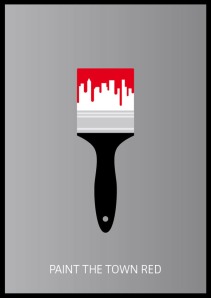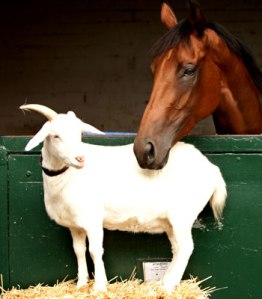This week we bring you the second part of our look at the origins and meanings of popular sayings. As we continue our series on Words and Word Choice, we are focusing on this important information to help you communicate effectively. While sayings and idioms are fun ways to express yourself, they only work if you understand their meaning, and if the person you are using them with also understands it. For example, if you have ever seen the classic 1987 movie The Princess Bride you will likely remember that Wallace Shawn’s character, Vizzini, keeps using the word “inconceivable,” but it doesn’t seem like quite the right way to describe the unfolding events. Mandy Patinkin’s character, Inigo Montoya, says to Vizzini “You keep using that word, I do not think it means what you think it means.” We don’t want you to be Vizzini when it comes communicating.
To help you avoid “beating around the bush” when communicating with others, today we continue to share the theories behind the origins and meanings of sayings you have likely said or heard yourself. We used the Facts on File Encyclopedia of Word and Phrase Origins, Oxford Idioms Dictionary for English Learners, and NTC’s Dictionary of Words and Phases as our sources for the meanings and origins of the sayings in this blog post.
– – –

Credit: Northern Sun
Killed with Kindness
If you don’t have anything nice to say, then don’t say anything at all. Instead, try killing the person or thing irritating you with kindness. Not literally, but in a way that makes you look good while also achieving a good outcome. The first recorded use of this expression comes from William Shakespeare who used it in 1596 in The Taming of the Shrew. However, the words and action of harming someone with excessive kindness may actually date back further to ancient Greece. The Athenian lawmaker and first legislator of Athens, Draco created the first constitution of Athens, a set of strict laws with harsh punishments enforced only by a court (one could receive the death penalty for stealing cabbage). Despite the harshness of the Draconian laws, Draco was popular among the people. Around 590 B.C. he was sitting in a theater at Aegina when he was literally killed by kindness. So many of the attending audience members hailed Draco, paying tribute by throwing articles of their clothing on him that he was actually smothered to death. We’re left wondering what the draconian punishment may have been for this act?

Credit: Design Your Trust user Raid 71
Paint the Town Red
There is more then one way to say tonight you are going out to have a great time. Probably the most colorful expression to use is saying you are going to “paint the town red.” Today, the best understood meaning of this saying is having fun visiting several bars and clubs in one night. But, this particular saying has many other theoretical origins from the hard partying ways of cowboys in the 1880’s American West to the flushing of drunk faces. The latter suggests a connection to the older expression “to paint” which meant “to drink.” Pair this expression with the way an inebriated person’s face turns red when they have had a few too many and you have another possible origin of this saying. Another possibility is that red is in reference to violence, and those who “painted” often did harm to themselves or others in their drunken stupor.

Credit: Halcyon Solutions Inc.
Get One’s Goat
You’ve probably had to deal with an annoying individual once if not several times in your life. Someone who drives you into a tizzy. This feeling isn’t common to just humans, its also felt by our equestrian friends. The saying “to get ones goat” is often believed to have to do with high-strung race horses. Goats were put in their stables to calm them, but the horses would become attached to their new roommate and grow upset if the goat was removed. The theory is that during horse races in the 19th century gamblers would use this practice to their advantage and steal the goat from the stable of the horse they wanted to lose so they could reap the profits of a win. Hence they would “get ones goat” to gain an advantage in the race. While gamblers may have been practicing “getting one’s goat” in the 19th century the phrase was first recorded by Jack London in his 1912 novel, Smoke Bellew, but it’s reference had nothing to do with racing. Other theories suggest that the phrase is linked to “scapegoat” of ancient Hebrew tradition; the word “goad” meaning to anger or irritate; or the 16th century French phrase “prendre la chèvre” which means “to take the goat.”

Credit: deviantart user tdj1337
Steal My Thunder
Don’t you hate it when you come up with a brilliant idea only to have someone suggest it before you, and receive all the credit for it? You’ve probably uttered the words “they stole my thunder” under your breath when this happens. Don’t feel too bad, the same thing happened to playwright John Dennis. Dennis discovered a new way to simulate thunder on the stage by shaking a sheet of tin. He used this method during his 1709 play Appius and Virginia which only ran for a short time. After his play had closed, Dennis was sitting in the pit at a rival theater during their production of Macbeth when he heard his thunder being simulated. This caused Dennis to exclaim “See how the rascals use me! They will not let my play run, and yet they steal my thunder.” So remember poor John Dennis next time someone steals your good idea and gets the credit for it. At least you weren’t the person who literally had their thunder stolen.
We hope you enjoyed the origins and meanings of these sayings and that they help make communicating “a piece of cake” for you in the future. What are some common sayings that you have always wondered about the origins of?
Liz Faris, Account Manager
Collaborative Services, Inc.

Recent Comments